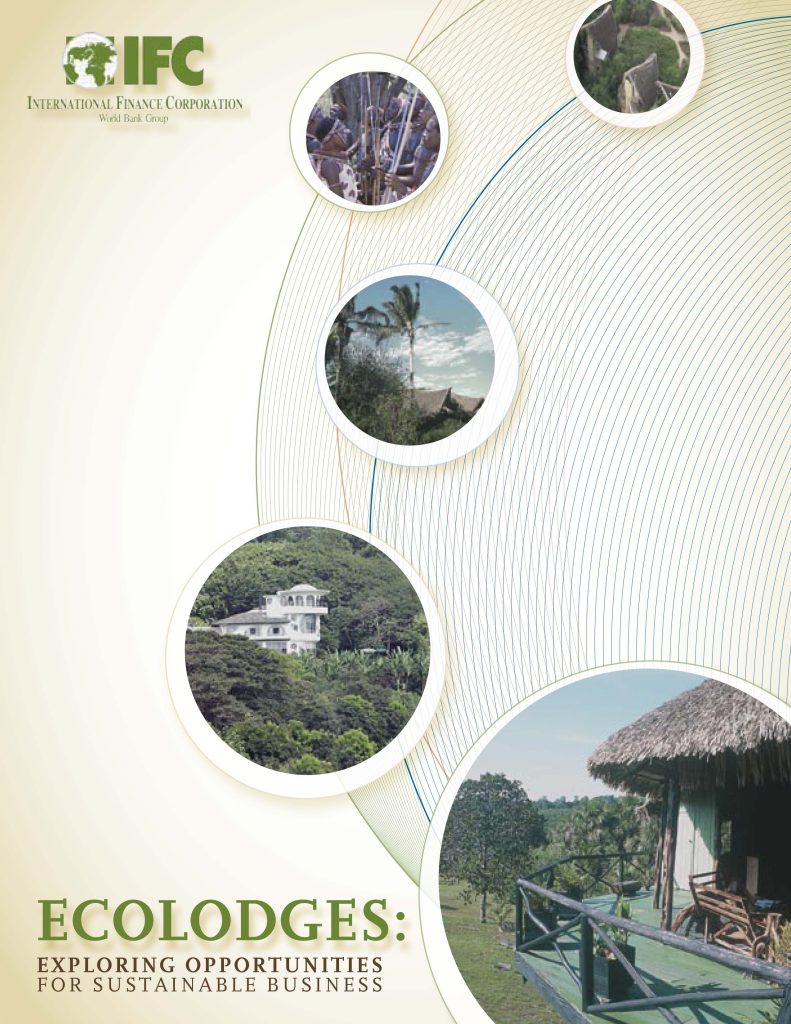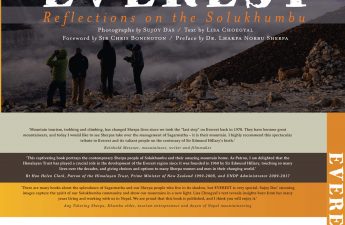
Ecotourism, which is responsible travel to natural areas that conserves the environment and improves the well-being of local people, is one of the most dynamic segments of the international travel industry. As a growing number of ecotourists plan their holidays around authentic natural and cultural experiences, they will increasingly seek accommodations, such as ecolodges, that reflect the main principles of ecotourism. The International Ecotourism Society (TIES) defines ecolodges as including three main components: conservation of neighboring lands, benefits to local communities, and interpretation to both local populations and guests.³ While the term “ecolodge” is used throughout this study, some parts — particularly the mapping of lodges in 60 countries and the in-depth surveys of 106 lodges — include ecolodges, as well as nature-based lodges and small beach resorts.
Ecolodges are of particular interest to the sustainable development community, because they are small, medium and micro-enterprises that can generate a variety of positive economic development impacts in highly rural, biodiverse areas, where other types of development underway or under consideration are frequently damaging to the environment. Yet no study has determined the factors that can make an ecolodge financially viable and ensure minimal environmental impact.
This publication summarizes the findings of two studies on ecolodges that IFC commissioned in 2004. The first, Ecolodge Footprint and Justification for Biodiversity Conservation,⁴ examined the environmental footprint of ecolodges. The second, A Review of International Markets, Business, Finance and Technical Assistance Models for Ecolodges in Developing Countries,⁵ evaluated the current and projected market demand for ecolodges and assessed their financial viability. With these studies, IFC sought to determine whether the environmental impacts and financial performance of ecolodges are sufficiently positive to justify IFC’s investing in them as part of its sustainable development mission. Genuine ecolodges have been in operation for less than 10 years, and many have only been profitable for several years. Until now, studies on ecolodges have been unable to look at business models or success parameters, because many lodges were too informal to provide sufficient business background or had not been in business long enough to become profitable. The businesses that were studied can be considered trend setters that have been highly innovative in developing a marketable brand for their lodges in their regions. Nevertheless, the results presented are still preliminary because of the emerging nature of this market.
Contributor: Lisa Choegyal
Author: Kelly Bricker, Martha Honey, Neel Inamdar, and Maria Placht. Researchers from West Virginia University are Sarah Millington, Jason Siniscalchi, and Trace Gale.
Publisher : International Finance Corporation
Date of Published: 2004
Language : English
ISBN-10 :
Download Url: ECOLODGES: EXPLORING OPPORTUNITIES FOR SUSTAINABLE BUSINESS


